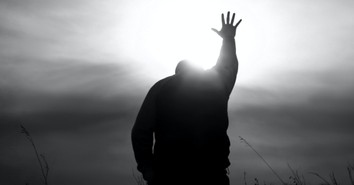What Can We Learn from the Bible Story of Elijah and the Widow?

A popular phrase we hear today, especially on the political scene is marginalized community. Such a term has become rather ubiquitous today, but if we applied this same idea to the Bible, who Scripture regards as marginalized is much more clear. The people in society most in need of help were the sick, the poor, the fatherless, and the widowed.
One particular Bible story that features a widow comes from 1 King 17, where an unnamed woman lives with her son in Zarephath. She has an encounter with the prophet Elijah that stimulates newfound faith. The woman represents not just someone overlooked and in need, but a part of society without faith in God. Through this particular experience, she found faith. Elijah too, a prophet of God, has his faith grown from the experience.
What can we learn from both of these people in this particular story? Before we answer that, let us examine the narrative’s context.
The Context of 1 King 17
The passage begins with a prophecy delivered by Elijah. He tells Ahab, King of Israel at the time, “As the Lord, the God of Israel, lives, whom I serve, there will be neither dew nor rain in the next few years except at my word” (1 King 17:1, NIV).
From there, God directs Elijah to different places, eventually leading to Zarephath. Before he gets there though, he is guided to a ravine. God instructs him to drink the ravine’s water and assures him that ravens will bring him food. This miraculous declaration means Elijah will have to trust God. Contingent with Elijah’s prophecy, the ravine where he drank eventually dried. This did not turn into an occasion for doubting, rather, God gave further guidance.
“Then the word of the Lord came to him: ‘Go at once to Zarephath in the region of Sidon and stay there. I have directed a widow there to supply you with food.’” (1 Kings 17:8-9)
Much like God provided for Elijah through birds, He was going to do something similar, this time through a woman. Once he arrived in Zarephath, he encountered the widow who was collecting sticks. While doing this, he asked her first for water and bread.
Her response initially contradicts what God said would occur. She told Elijah that she had olive oil and flour, but very little. There would be no bread to give him, and what little food she had may not have been enough for her and her son to survive (1 Kings 17:12). From her perspective, she was being courteous to Elijah but was realistically unable to go above and beyond in providing for this stranger.
However, Elijah had clear faith in God and had just been provided for in the form of birds. He didn’t have the same doubt the widow did. He had faith. And with that faith, he encouraged her. Elijah told her first to not be afraid, something Jesus often told the disciples, then he explained his prophecy (1 Kings 17:13-14). He spoke to her with authority and with God on His side. Elijah assured her that she would not run out of the little supplies she had, another occurrence similar to Jesus feeding the thousands with little provision. God can take a little and make it a lot, and He did just that!
An unspecified amount of time passed and something terrible happened in the widow’s life, all the while, Elijah’s predicted drought is affecting the land. The woman’s son became terminally ill. At some point, he stopped breathing (1 Kings 17:17).
“She said to Elijah, ‘What do you have against me, man of God? Did you come to remind me of my sin and kill my son?’” (1 Kings 17:18).
The woman was understandably distraught about her son, even as she questioned Elijah. On the other hand, he had a more measured response and prayed to God on behalf of the woman and her son. He “cried out” to God in his prayer and the boy was healed from His affliction (1 Kings 17:20).
Now that we have the context, let’s discuss three ideas we can glean from this passage.
3 Lessons to Learn from the Bible Story of Elijah and the Widow
1. Faith
Faith is a motif in the story of Elijah and the widow from beginning to end. Both ultimately cultivated deeper faith through experiencing God. Elijah deepened his faith by obeying God’s initial command to leave where he was and travel. God provided for him first through nature, then through a person.
What Elijah reveals through his obedience is that he trusted God. Whatever the Lord said, Elijah believed ahead of time. More spectacularly, Elijah did not doubt while also knowing that a drought would be occurring across the land. He knew God would take care of him.
Elijah’s faith was mirrored in this same way when God directed him to Zarephath, another location, and a new source of provision. Again, Elijah obeyed without any indication of doubt. Where the widow doubted her ability to provide, Elijah knew through God provision was not just possible, but inevitable. God was watching over him.
The widow’s testimony also points us to faith, though from the perspective of someone who learns to believe in God. First she doubted her provisions. God proved her wrong. Then she doubted when her son became ill. Again, God proved her wrong. As an unbeliever, she learned to trust God through experience, but first she took a chance. She could have disregarded Elijah’s prophecy but didn’t. Then she bore witness to his faith and grew her own in the process.
2. God’s Providence
Providence can be defined as godly care of oversight that God provides people.
In this particular passage, we see God’s providence on display in how He looks after Elijah. God cares for His people, and the prophet is no exception. We witness God’s providence through the ravine, the birds, the widow, and even though Elijah himself. God set Elijah on a mission and was not confused about what plans He set forth. He communicated some things to Elijah, like the water, food, and bread, but did not mention the son becoming ill. Still, God knew what would happen. Though God doesn't tell us everything, we can be assured that He knows everything.
Furthermore, in this story, nature supplied Elijah with what he needed to survive, reminiscent of God-given man authority over nature in Genesis. God also provided for Elijah through the widow. Jesus tells us to love our neighbors as ourselves, Solomon says iron sharpens iron, and other verses reference taking care of one another. This is a reminder that God sometimes places people in our lives to aid us through certain seasons. And sometimes we are destined to aid others.
3. God’s Provision
When God says that provisions will come, we can rest assured that this will indeed be the case. God told Elijah that He would have food provided for Him. Elijah asked the widow for food and had no doubts that he would receive bread. The woman, on the other hand, had doubts. The woman lacked faith, and with that lack came room for doubting. Elijah’s faith didn’t provide any room for doubt.
If we were to adopt this philosophy in our own lives, we would realize that when God says He will never leave or forsake us, He means just that (Hebrews 13:5). When God says He has good plans for us, we can trust Him (Jeremiah 29:11). God will guide us and He will provide. He may not give us what we want, but He gives what we need.
Considering her position in life, the widow was a woman with a child living in a society with less opportunity provided for her. Ostensibly, she had every reason to doubt, but if we have faith in God we shouldn’t no matter the circumstance. Scripture tells us over and over to not be afraid. We shouldn’t be afraid not because our circumstances are easy, but because God is so good. His goodness is so much bigger than the circumstances.
God Uses the Least to Do Great Things
Jesus referenced Elijah being sent to a widow in Luke 4:25-26. How amazing is God when He has the sovereignty to send us on a journey, no matter where we are or who we are, and provided for us along the way?
There are many passages in the Bible that remind us of the importance of faith. Though this particular story lacks the intensity of David slaying Goliath or the Israelites fleeing Egypt, sometimes the simpler stories too have a way of speaking to us living in the modern day. We can likely find more commonality with Elijah in need of food and water than we can with slaying a giant.
What’s powerful about this story too, is the reminder that God uses those least among us to do great things. Men with small stature become kings. A prostitute was held in high regard for hiding Israelite spies. Jesus led a successful ministry despite being a man with next to nothing to His name. The widow in this story with Elijah has no name, and yet her presence speaks volumes. She too offers a lesson to learn
No matter what story we fall into appreciating the most, they all point us back to God. He is present, daily, watching over us, and providing. He cares for us when we show faith and even in those moments where we undoubtedly lack. The trick then is for us to do less doubting, and do more believing. That’ll make life a whole lot easier in the long run. When the drought comes our perspective will keep us focused on God.
Photo credit: ©GettyImages/PaulCalbar

Get in touch with him at aarondanthony.com and check out his debut short story anthology Honey Dreams on Amazon and Barnes and Noble.
Originally published April 06, 2022.




